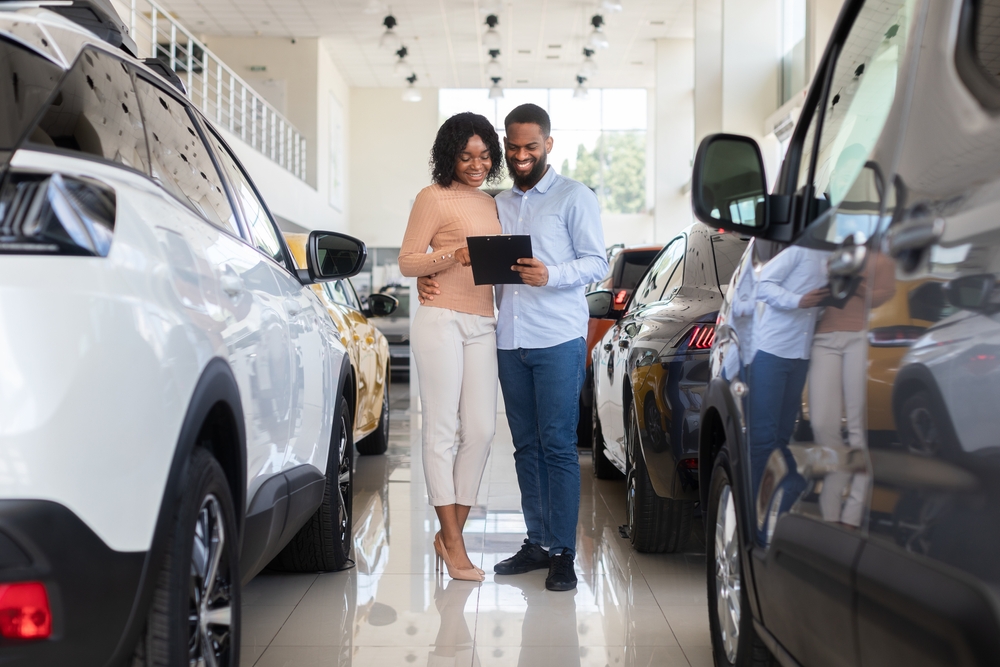Buying a Car vs. Leasing: Which is Better?

If you’re in the market for a new car, you might be torn between buying or leasing. They represent two different ways to secure a new ride. When buying a car, you’ll likely take out an auto loan (unless you pay in full upfront). You’ll own the vehicle outright after making your final payment. When leasing, you’re essentially borrowing the car for a predetermined amount of time. You’ll have the option to return the car at the end of the lease, purchase it, or trade it in for another lease.
So what’s better: leasing vs. buying a car? There isn’t one right or wrong answer. The best option for you will depend on your unique needs and budget. Here’s a rundown of the pros and cons so you can decide what makes the most sense for you.
Buying a car
Pros
- Your monthly payment will eventually go away. When you buy a car, you’ll own it free and clear after making your final loan payment. That could free up real cash in your monthly budget — experts say the average car payment is at least $650.
- You can drive as much as you want. Most car leases come with mileage restrictions. In most cases, you’re limited to 12,000 to 15,000 miles per year. (A car’s value typically decreases as you rack up more miles.) Whether you buy a car outright or finance it with an auto loan, you can drive as much or as little as you like.
- Auto insurance is usually cheaper. You’ll be expected to follow your state’s auto insurance requirements whether you lease or buy. However, most leasing companies require higher levels of coverage. You’ll likely be required to purchase collision and comprehensive coverage, according to the Insurance Information Institute. You might also have to buy gap coverage. This covers you if you total your leased car and there’s a gap between what you receive from your insurance company and what you owe to the dealer.
Cons
- Your monthly payment might be higher. When you finance a car, you’re paying for the purchase price — plus interest, taxes and other fees. Leased car payments are structured differently and are usually cheaper. (More on this in a moment.)
- You’re on your own for maintenance and repairs. When you buy a car, upkeep costs are on you. That includes routine maintenance as well as unexpected repairs, whether from an accident or regular wear and tear. Most leased cars include maintenance and repair coverage through the manufacturer warranty.
- You miss out on trade-ins. When leasing a car, you’ll have the option to trade in your current lease for a new one. In theory, you could upgrade to a new car every few years.
Leasing a car
Pros
- You’ll be covered by a manufacturer’s warranty. That means covered maintenance and repair costs aren’t your problem. Credit Karma reports that the average monthly maintenance cost of owning a car is $99. That adds up to $1,188 per year.
- Your monthly payment will likely be lower. Lease payments are calculated based on the car’s expected depreciation. You’ll still have to pay interest and fees, but it’s usually less than you’d pay with an auto loan.
- You can unlock a new car every few years. When your lease term is up, you can trade in your current lease for a new model. The latest models usually have the most bells and whistles, which can be a nice perk if the monthly payment works for your budget.
Cons
- Your overall spend could be higher. Again, insurance costs are usually steeper when leasing a car. Between your down payment, monthly payments, and insurance costs, leasing a car could cost you more in the long run — especially if you finish your lease term with damage or excessive wear and tear. In that case, the leasing company could charge you extra.
- You could be stuck with a car payment forever. With an auto loan, your monthly payments will eventually disappear. Those who choose to lease long term will always have a monthly payment. They also aren’t building any equity. Unless you purchase the car at the end of the term, a leased car never belongs to you.
- Your miles are limited. If you plan on doing a lot of driving, a lease may not be compatible with your lifestyle. Most leasing companies charge 15 to 25 cents for every mile you go over, according to Autotrader.
Which is best for you?
When it comes to leasing vs. buying a car, the best option for you will depend largely on your budget and lifestyle. If you don’t want to deal with routine maintenance and repair costs — and you like driving a new car — leasing might be a good fit. Meanwhile, buying a car allows you to eventually pay off your loan and be free of monthly payments. Your total costs over the long run may also be less when compared to a leased car. You’ll want to think about your financial situation to see which option makes the most sense for you. Either way, you’ll need to insure your new car. Matic makes that part simple, allowing you to easily compare top-rated insurance carriers and policy options.
Do you have adequate coverage on your auto insurance?
We make it easy to compare top-rated insurance carriers with just a few clicks, so you can get the best value for the best coverage.
Get an Auto Insurance Quote Now


